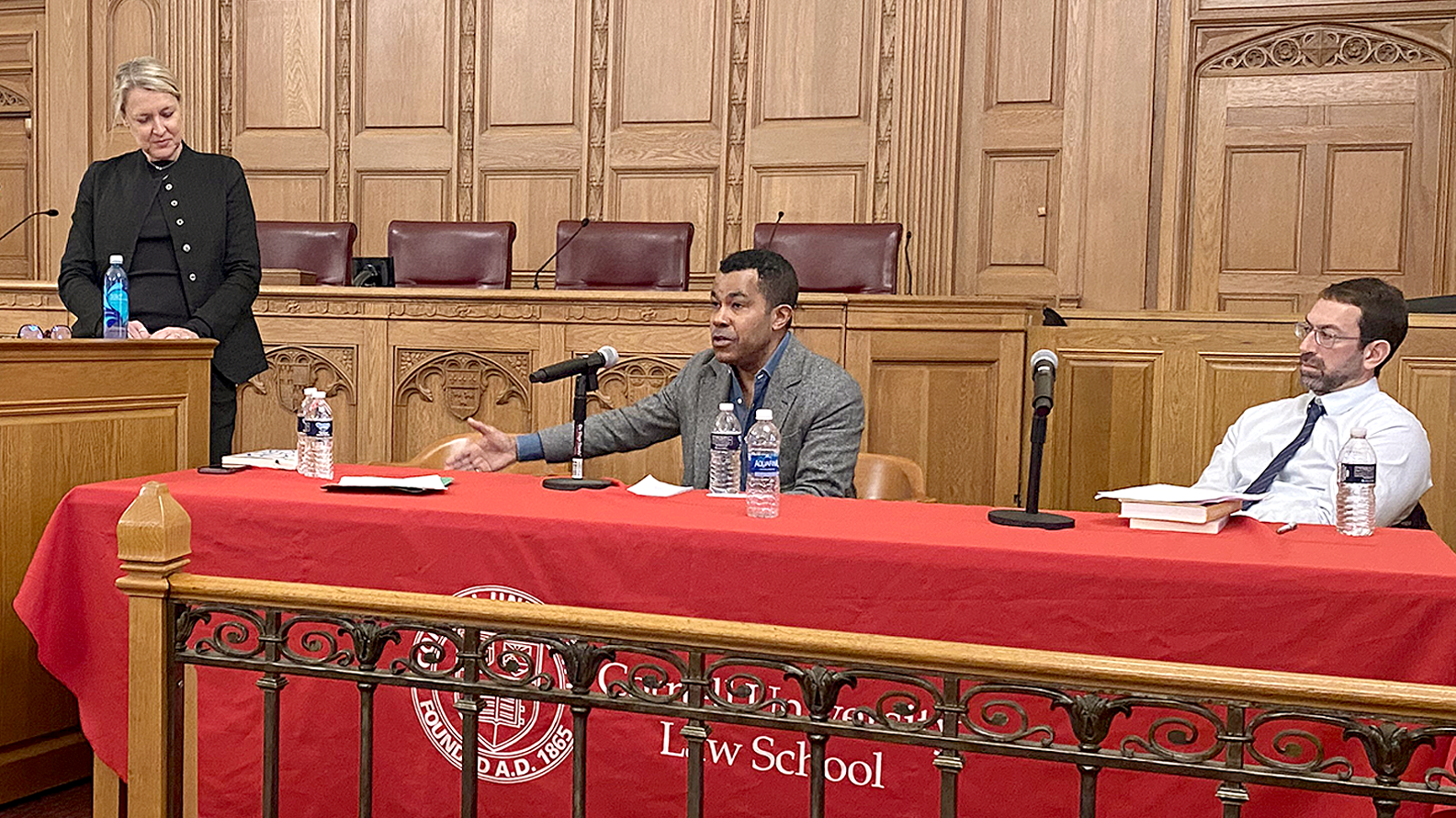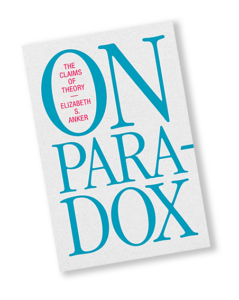This website uses cookies
We use cookies to ensure that we give you the best experience on our website. If you continue to use this site we will assume that you are happy with it.

“How did we get from the heady excitement of the late 20th century to here, a moment where it’s commonplace to declare the death of the liberal arts?” Elizabeth Anker, professor of law and professor of English, posed this question to an audience in the MacDonald Moot Courtroom on March 13. They’d assembled to celebrate her book On Paradox: The Claims of Theory (Duke University Press, 2022), and paradox, she argued, was at the heart of this shift.
 The celebration was organized by Jed Stiglitz, associate dean for faculty research and professor of law, and moderated by Chantal Thomas, associate dean for academic affairs and Radice Family Professor of Law. Joining the discussion were guests Richard Thompson Ford, George E. Osborne Professor of Law at Stanford Law School, and Samuel Moyn, Chancellor Kent Professor of Law and History at Yale University.
The celebration was organized by Jed Stiglitz, associate dean for faculty research and professor of law, and moderated by Chantal Thomas, associate dean for academic affairs and Radice Family Professor of Law. Joining the discussion were guests Richard Thompson Ford, George E. Osborne Professor of Law at Stanford Law School, and Samuel Moyn, Chancellor Kent Professor of Law and History at Yale University.
Anker spoke first, giving an overview of some themes of the book, with a focus on how the framework of paradox came to dominate many sectors of academia over the last half-century, and how this once revolutionary approach has become self-defeating.
She identified the tendency of paradox to homogenize analysis and observed that “reveling in paradox can work to aestheticize, to mystify, and in the end, to stymie moral decision making.” Most worrying, she noted, was how, in the current moment, the framework is being hijacked.
An approach that was once thrilling to her as a young scholar is now, she said, more often found in the service of anti-democratic speech, “used in a manner cunningly devised to undermine the very sorts of social justice initiatives that popularized that logic to begin with.” Indeed, she observed, “One might identify the 21st century’s most ardent evangelist for paradox as our last president.”
More than anything, she concluded, her book argues for an update and expansion of the critical thinking toolkit to include values beyond paradox.
Speaking next, Moyn complimented the book’s conversational tone and invitation to rethink the last few decades of paradox (or “theory,” as he called it). While acknowledging that Anker was “profoundly right” in her cautions about the consequences of theory, he went on to argue that, though critical theory has become hegemonic in the humanities, it was actually defeated in law schools by a “liberal, precisely normative theory of justice,” which has its own pitfalls. He concluded by expressing hope that the new kind of theory envisioned by Anker could help overcome the mistakes of both approaches.
Ford also delved into the dominant intellectual tradition in the legal academy, describing it as “a certain kind of civil rights triumphalism.” He observed that the legal field has “ridden on the coattails” of its contributions to the civil rights movement, telling itself a story about its own efficacy, and could use some more critiquing. He also saw Anker’s book as pointing a way toward taking on both the self-defeating paradoxes of the humanities and the self-congratulating pretensions of legal liberalism. Noting that critique is not the same as opposition, he suggested that, perhaps paradoxically, Anker’s critique of critical theory is in fact critical in the best and most productive ways.